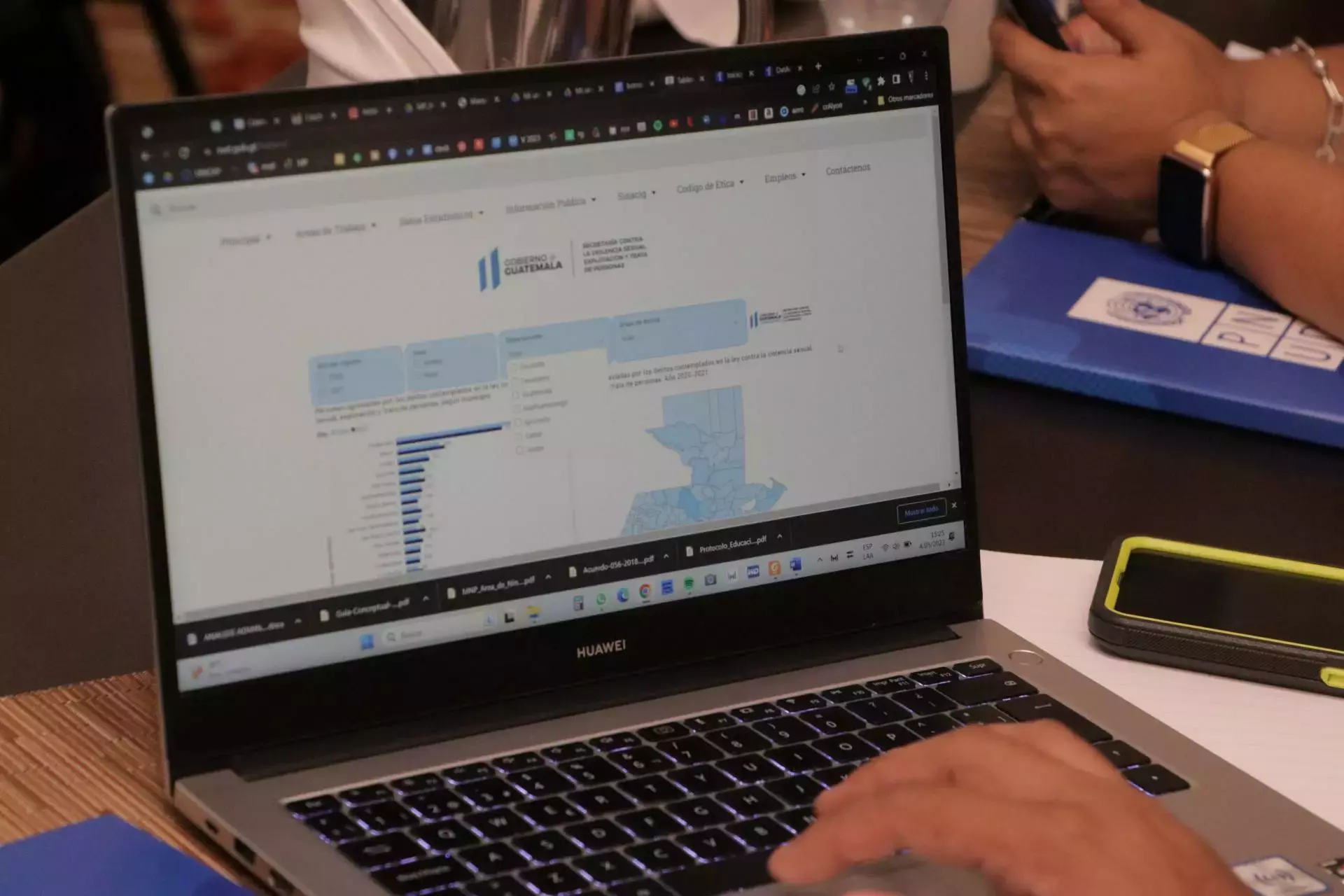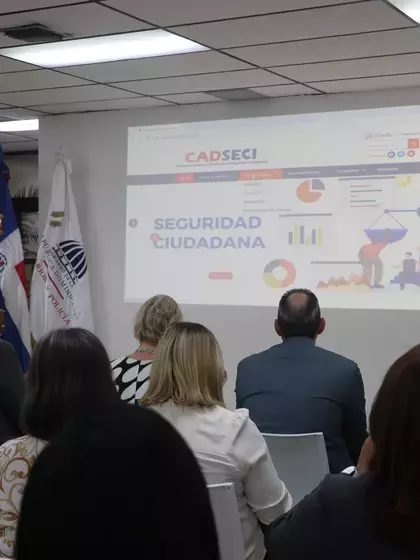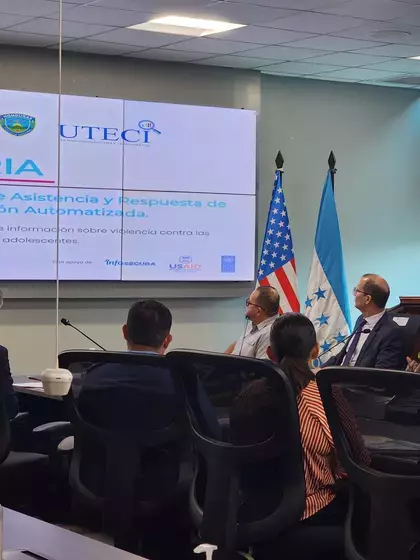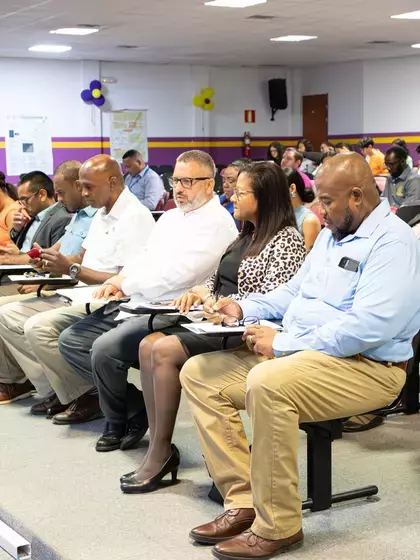InfoSegura builds capacity at the Secretariat against Sexual Violence, Human Exploitation and Trafficking to provide the public with access to data on sexual violence, exploitation and human trafficking in Guatemala

Attendants included the Vice President of the Republic Guillermo Castillo Reyes, the executive secretary of the Secretariat against Sexual Violence, Exploitation and Human Trafficking (SVET) Sandy Recinos, UNDP Deputy Resident Representative in Guatemala Daniel Vargas, authorities and technical staff from data-producing institutions and guests from throughout the region by way of the on-line InfoSegura community of practice ‘DatAction.’ The Public Access Dashboard with Data and Statistics on Sexual Violence, Exploitation and Human Trafficking and Flowcharts of Justice showing offenses such as Sexual Violence and Human Trafficking (known as VET crimes) were presented.
This institutional strengthening process was provided by the UNDP-InfoSegura Project with the support of USAID. This is part of a sustained nine-year process, whose principal objectives include providing support to primary sources of data and information on citizen security, including the group of government institutions on the National System of Information on Violence against Women (SNIVCM Spanish acronym), the National Statistics Institute, which also includes the Secretariat against Sexual Violence, Human Exploitation and Trafficking (SVET). This Secretariat is responsible for enforcing the Law against Sexual Violence, Exploitation and Trafficking (VET Law). Primarily, it advises government institutions responsible for the prevention, response and protection on this issue, promoting effective strategies to improve the quality of life of children, adolescents and women in the country.
In the context of the Public Information Access Law, provided technical support for creating a series of dashboard infographics that will provide dynamic access to data. Flowcharts on Justice of the VET crimes were also created. This support responds to Project objective to achieve a significant improvement in the availability, quality and comparability of data and statistics on citizen security and justice in Guatemala. This provides authorities, decision-makers and the general population with easy access to data that is processed, contributing to evidence-based public policy design.
The instruments were jointly developed, and will provide users with access to public information, promoting the use of data as evidence in decision making to address and prevent VET crimes.
This type of tool also supports efforts to advance the 2030 Agenda for Sustainable Development, specifically, SDG 16 on Peace, Justice and Strong Institutions, whose targets proposes an end to abuse, exploitation, trafficking and all forms of violence and torture, and SDG 5: Gender Equality that prioritizes eliminating all forms of violence against women and girls in public and private spaces.
The InfoSegura Regional Project is the first regional strategic partnership of the United Nations Development Programme (UNDP) and the United States Agency for International Development (USAID) working to improve information management systems to address matters of citizen security and justice in Central America and the Dominican Republic.
Access the dashboard
This article was originally published on the UNDP Guatemala website.





